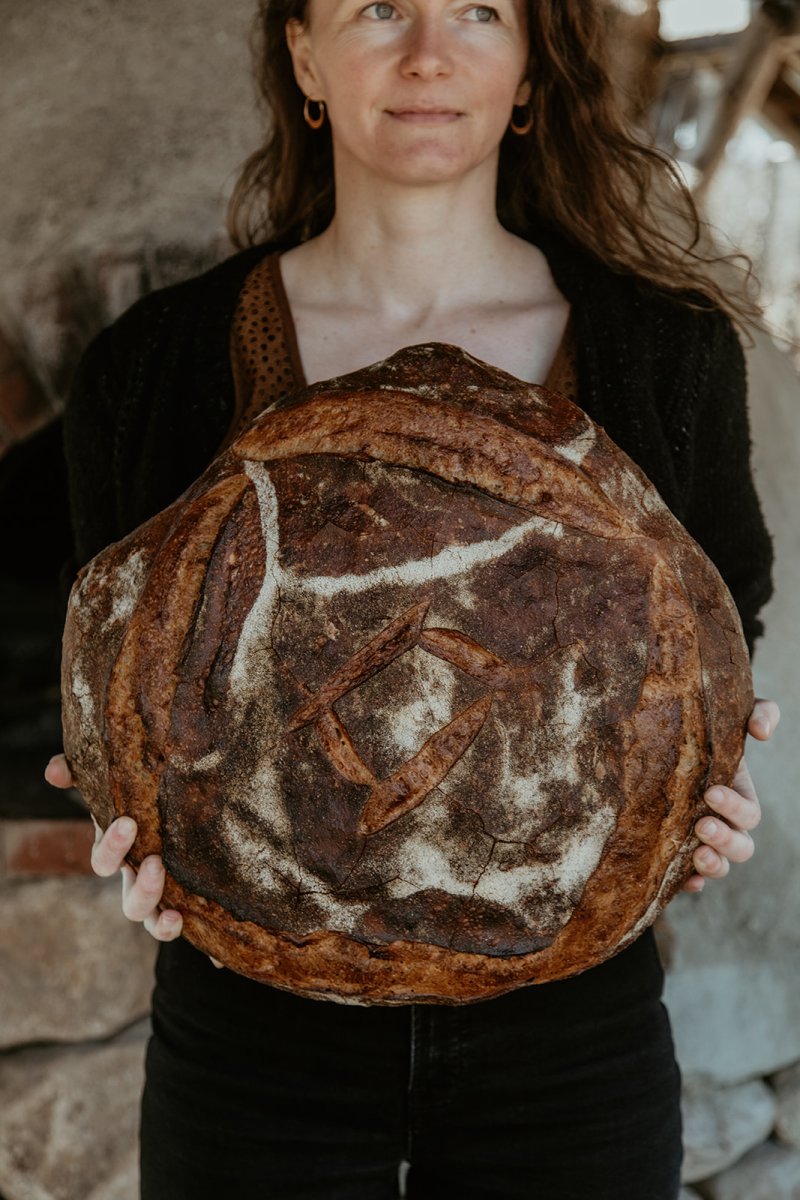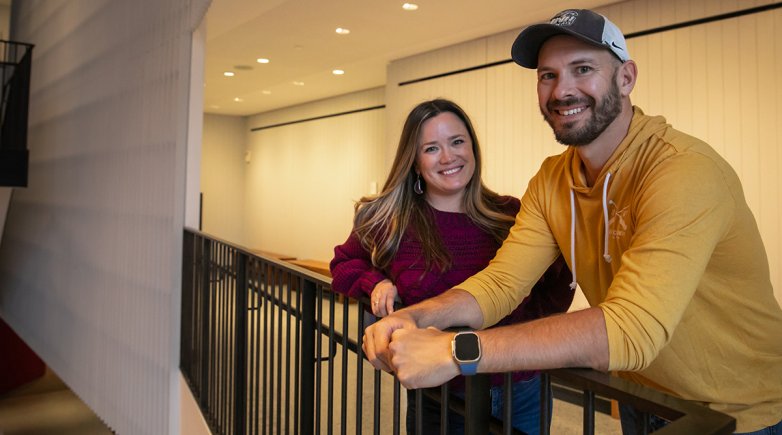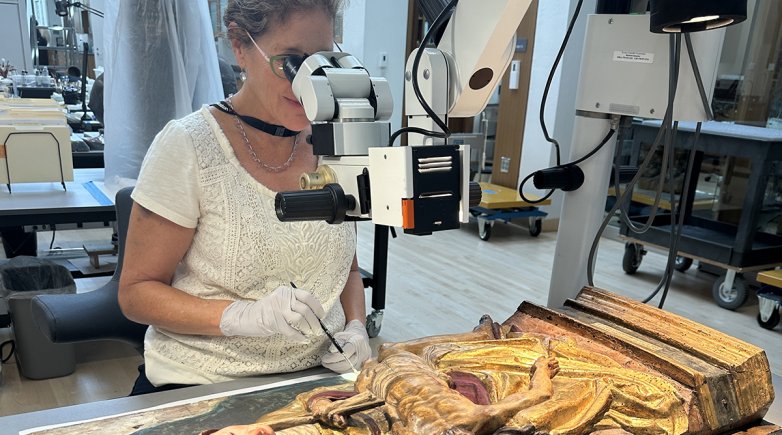Lydia Moffet

"I can step into the bakery for a minute and just have this wave of feeling of goodness."
When The New York Times published “The Restaurant List 2023,” Lydia Moffet ’03 had to laugh. The annual compendium of 50 places in the United States that the paper’s staff is “most excited about right now” featured the usual culinary hot spots: New Orleans, Chicago, Manhattan. And ... Brooksville, Maine?
That lonely dot in the nation’s northeast corner marks Tinder Hearth, the bakery/restaurant created in 2006 by Moffet and her husband, Tim Semler. It’s a relatively modest operation, offering breads and pastries for walk-in purchase and a nightly pizza menu, all featuring locally sourced ingredients. With the nearest town center 15 miles away, “we really are in the middle of nowhere,” Moffet says, adding, “We have people come from all over the country and show up and feel like they’re home. I hear people say that over and over again.”
What’s her secret? For one, it’s a bewitching spot. In wintertime, patrons dine in a 200-year-old barn restored by Semler. A small breezeway kitchen leads to the 1840s-era farmhouse, Semler’s childhood home, where the pair live with their two children. In warmer months, outdoor tables sprout amid trees, flower beds and vegetable plots, planted by Semler’s mother over decades. The result, says Moffet, is “magical,” a sort of enchanted garden.
Food and community have always been central to Moffet, a Deer Isle native who as a girl began working summers in the nearby Haystack Mountain School of Craft’s kitchen. At Hampshire College, she relieved academic stress by “doing a lot of fermentation projects in my little campus apartment, baking very dense sourdough spelt bread. Fermentation was my wanting to have that kind of physical work, and to have things to nurture.”
In her 20s, she met Semler, and they moved back to Maine. Initially, Tinder Hearth consisted of one clay oven, handmade by Semler, dominating their backyard. When they weren’t outside baking, they sold their goods from their porch or at farmers’ markets. Eventually, they approached friends (“before it was called crowdfunding”) and raised capital to build the bakery space.
Making good bread is “a whole relationship,” Moffet says. “It’s process-oriented rather than recipe-based.” The restaurant’s organic grains come from small local farms, “so seasonally, or even pallet to pallet, the flour we receive may behave very differently,” she says. “It has to do with working with a wood fire, natural leavening, the type of flour we work with, the way we like to make the bread. Small variables make for huge differences in outcome.”
Of course, Moffet is an employer as well as a baker, supervising 15 to 40-plus workers at a time. She credits Exeter’s instructors with teaching her how to lead by “opening doors for people to be seen and heard, rather than just being ‘the boss.’”
“I feel so committed to creating a workspace that people want to come to,” she says. “It raises them up to be together, to be collaborative. I feel like that’s pretty rare in the food world, where there’s a lot of negativity and competitive energy. ... I try to make that a gift I can give them, to say, ‘You can have work in your life that’s meaningful, where you’re valued.’”
When she’s in her office, wrestling with bookkeeping and email, she says: “I can step into the bakery for a minute and just have this wave of feeling of goodness. I love these people! It’s so simple. I’m a mammal, these are my people, this is my pack. ... I feel so grateful.
Editors Note: This profile first appeared in the Winter 2024 issue of The Exeter Bulletin.



